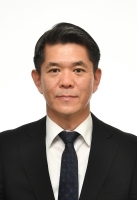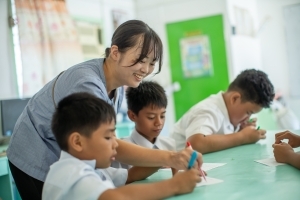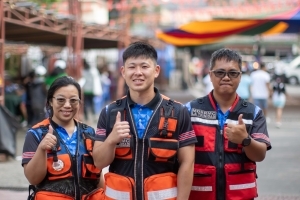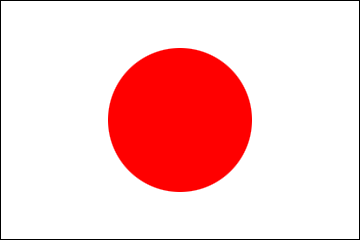A Cause for Celebration: The Japan Overseas Cooperation Volunteers’ 60th Anniversary
2025/8/7

(Ambassador ENDO Kazuya's written contribution on the occasion of the 60th Anniversary of the Japan Overseas Cooperation Volunteers )
It is quite well-known that Japan has long been the Philippines’ top source for official development assistance. In 2024, it remained to be the largest donor followed by the Asian Development Bank and the World Bank according to data by the DEPDev.
Japan’s involvement in large-scale infrastructure projects, including the North-South Commuter Railway, the Metro Manila Subway, and the Davao City Bypass, has also signaled its role in the country’s development.
Beyond the scale of support, what has mattered equally are our experiences—shared joys and sorrows in walking side by side for the betterment of the local community.
Among our most enduring partnerships, the Japan Overseas Cooperation Volunteers have walked alongside us for decades in our shared journey toward progress.
The Japan Overseas Cooperation Volunteers, or JOCV for short, has enabled promising volunteers from Japan to work with local communities to address a variety of issues on a close, grassroots level.
With 2025 marking the program’s 60th anniversary, let us reflect on their extraordinary stories and the truly equal partnership they embodied.


[L] JICA Volunteer NAKAZAWA is assigned in Iloilo to share math education techniques ©JICA Philippines
[R] JICA Volunteer YAMAMOTO poses with his counterparts from disaster risk reduction office in La Trinidad ©JICA Philippines
The Japan Overseas Cooperation Volunteers
JOCV started in 1965 as one of the programs managed by the Overseas Technical Cooperation Agency, a precursor of the Japan International Cooperation Agency (JICA).Together with Laos, Cambodia, Malaysia, and Kenya, the Philippines was part of the JOCV program’s inaugural dispatches to five countries. The Philippines received 12 volunteers—the largest share out of 29 total volunteers at the time.
Since then, JOCV operations have widened its reach dramatically in region, areas of cooperation, and numbers, having dispatched a total of 57,000 cumulatively in continuing its work in 99 countries.
Unlike typical JICA assistance, JOCVs engage more directly as they live with their host communities for two years. This allows them to dive deeper into the local community and eagerly work to improve their well-being.
Through JOCVs, Japan’s diverse human talents are well utilized for a wide range of support including agriculture, education, primary health, and social welfare.
Even with its remarkable growth, the program has still kept to its objectives: making a difference in communities, while promoting mutual understanding and international goodwill.
JOCVs in the Philippines
Over the years, the journeys of JOCVs in the Philippines have provided the richest examples of our cross-cultural exchanges.To appreciate the depth of these volunteers’ dedication to friendship, we begin with Ms. WATANABE Juri’s story, a volunteer who served in Mayoyao, Ifugao, from 2012 to 2016.
With her rich experience and research in the field, Ms. Watanabe used her passion for aquaculture research to help her community capitalize on their abundance of loach fishes. She aimed to work with locals on a sustainable and accessible method to raise loaches for sustenance.
Difficulties such as securing breeding stock initially led to declining morale among her colleagues. Undeterred, she repurposed a neglected municipal fish farm and steadily worked with her community and the resources available.
Through trust and cooperation, Ms. Watanabe ended her 4-year stay, including an extension, with the locals significantly capable of managing the farm. What started as simple volunteer work transformed into a whole community-driven project.
Meanwhile, Ms. KAMEHAMA Chihiro began her assignment in 2024 at a special need center supporting children with disabilities in Oton, Iloilo. The seasoned teacher in Japan faced some difficulties with a community that mainly communicated in Hiligaynon.
Driven to grow with the community, she studied Hiligaynon and American Sign Language while she worked daily. Through sheer will, she was able to build better relationships with her students and their parents, even realizing opportunities for eventual vocational training to this very day.
Boasting a vast tapestry of stories at present, the long history of JOCVs in the Philippines has also included lasting legacies such as that of Mr. NAKAGAKI Osamu.
In the early days of the JOCV program, in the 1970s, he worked in mango cultivation in San Fernando City, La Union. The mango orchard he established, now known as the La Union Public Botanical Garden, continues to captivate visitors with its lush greenery.
Hearteningly, the JOCVs’ efforts would culminate in a Ramon Magsaysay Award in 2016 for their unwavering devotion. Earning a commendation from one of its pioneering partners, with the “Nobel Prize of Asia” no less, remains an unsurpassable honor.
To date, over 1,700 JOCVs have served the Philippines since its maiden journey. Having met a new group of volunteers in June this year, I can say the legacies of JOCVs are in truly capable hands.
Dedication Through Decades
Backed by a proud history of service, the JOCV program continues strongly to this day, anchoring our people-to-people exchanges on passionate collaboration.With future deployments focusing on human resource development, industry growth, and disaster risk reduction, we can expect to share more stories and triumphs together.
I salute the JOCVs, here and all over the world, on their special year. Here’s to the spirit of volunteerism connecting Japan to the world.
Mabuhay ang JOCV! Maraming salamat at Arigatou Gozaimasu!
